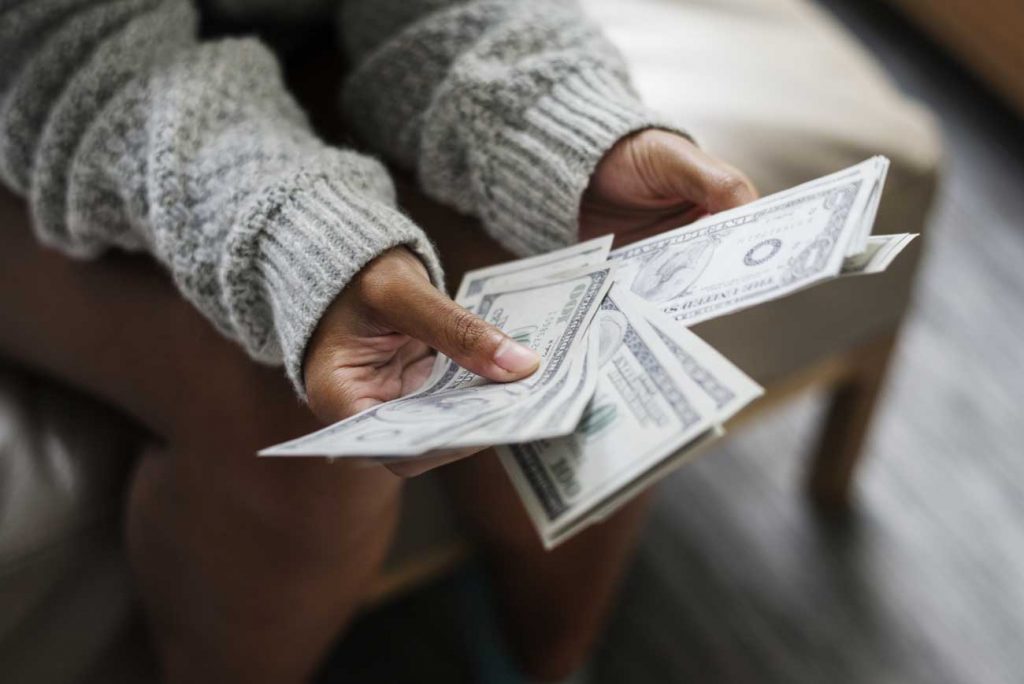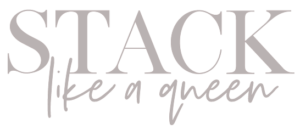
The coronavirus crisis of 2019/2020 will be one of the worst pandemics many of us have experienced, possibly with long-reaching and long-lasting effects. Preparation and taking the proper precautions always beats panicking, so I polled my Instagram audience to get some of the most burning questions. You’ll find the answers to those questions here.
Dealing With Employment Concerns
If you work in an industry that’s affected by the coronavirus, even indirectly, it’s normal to fear the risk of having your hours cut, being out of work temporarily, or worse let go completely. Local and state governments have mandated bars and restaurants to be closed completely or open only for carry out. Some stores have voluntarily closed to prevent spread of infection. Plus, people have throttled back on going out, which means spending could be down, and businesses may be forced to cut back on personnel to make up for the losses.
Talk to your employer about what’s going on and what you can expect in the coming weeks and months. They may not be fully aware of the company’s plans for the future, but can possibly give some details on what you can expect.
In the meantime, update your resume so it includes all the most important achievements and contributions from your current position. Get more active on social media, like LinkedIn for example, so you’re more visible and marketable in case you need to look for a job soon.
If you have the chance to pick up a side hustle or put more time into a new business, this is the perfect time to grow an alternative stream of income. It’s also a good idea to cut back on spending and avoid taking on any new long-term obligations until you’re more sure of your job security.
Explore Options for Making Ends Meet
No matter what happens to your income, the bills will still be due in the coming weeks and months. Many utility companies and service providers have announced they will not disconnect services for the next several weeks. Contact your service providers to see if that applies to you. But you’ll still accrue charges in the meantime and that could leave you with a lump sum to pay once the crisis is over.
Call your creditors to see if they can offer some relief. The best first step to take is to see what your creditors can do for you. You can ask for minimum payment assistance, loan deferment or forbearance (including student loans), or to have certain fees waived. It’s important to do this before you miss a payment if you want to protect your credit.
Access funds you have tucked away, including your emergency fund. Some banks may waive early withdrawal penalties on CDs, so you can access those funds if you need to make ends meet.
Check to see if you qualify for government benefits. You may qualify for unemployment insurance or food assistance programs.
Make payments if you can, so you don’t fall too behind. Even if that means paying the minimum. If you only have a little bit to go around, prioritize what’s most important – like housing and transportation costs – and try to work with your creditors on everything else.
Even if your job hasn’t announced cuts, it may be coming. Start thinking of other income streams that will allow you to make money from home now. I’m working on a list of ways to make money exclusively online, but for now, check out my post The Big List of Side Hustles for some ideas.
Keep the Kids Busy and Entertained
Schools across the country are closing to prevent the spread of the virus. Naturally, this can be inconvenient especially for parents who still have to work outside the home, but keep in mind that keeping children separate from each other prevents spread of the infection and helps us return to a state of normalcy much faster. It minimizes the damage that could be done to our health and economy versus if more people are infected at the same time.
But that doesn’t make it any easier on parents especially parents of young children who may still need child care. Here are a few tips:
- Talk to some parent friends about sharing in child care costs, maybe splitting the cost of a sitter or taking turns caring for the children. Remember not to group too many children together to minimize spread of infection.
- Seek help from a friend or family member and alternate days so that you don’t overwhelm one person too much.
- Seek free local free lunch options. In some areas schools are continuing to offer free lunches for families who are not able to afford lunch while schools are closed. Getting an extra meal can keep your kids from eating you out of a house and home while they’re away from school.
- Look for some low cost activities for your child to do while they are out of school so that you don’t break the bank trying to keep them busy.
- Plan your meals and shop smart to keep your grocery budget from increasing. Somehow these kids manage to only eat breakfast, lunch, and dinner while they’re in school, they can do the same thing while they’re at home.
Be Smart, Not Emotional With Investing
Fear and greed are two emotions that can cost you big time when it comes to investing.
Checking your stock portfolio or your retirement accounts will make your heart sink. Everyday, the news seems to get worse with the stock market experiencing the biggest losses since the Great Recession in 2008. The market is simply reacting to all the uncertainty over the virus and what it means for businesses – as we all are.
Checking your 401K and other investment portfolios right now might bring a big shock as you see just how much your balance has declined within the past several days. Here’s what you should do:
First, stop checking your balance. The market may continue to drop for several more days weeks or even months before it settles down and turns around. Continuing to check your balance will only put you in a state of panic and make you more likely to make a mistake that could hurt you in the long run.
Keep making your regular contributions to your 401K, especially if you have an employer match. Putting money in your 401K has tax benefits plus buying at a low price allows you to get more shares of stock than you would if the market were doing better. Of course you should consult with a financial professional for any questions about moves you should make.
Save up and make a lump sum contribution to your portfolio. If you’re not completely confident investing right now, that’s understandable. Instead, set aside the monthly contributions you would have been making and then invest it all at once.
Invest wisely, no matter what the market does. Some people are taking advantage of low stock prices and adding to their portfolio, which could be beneficial in the long-run. It’s important, as always, to do your research before investing in anything and invest in things that fit your long-term strategy.
Make sure you talk with your financial advisor about the best investing moves to make based the current economy and your long-term goals.
Make Travel Plans With Caution
Social media has been a nonstop source of entertainment with meme after meme about snatching up the cheap flights. Airlines are offering major discounts on tickets to some of the best places not only in the United States but across the world (except Europe for the next few weeks as there’s a ban on travel to most countries on the continent).

Don’t be blinded by cheap flight prices. Remember, trip costs include more than just a plane ticket. You also have to cover your lodging, transportation, food, and any entertainment. All of a sudden those $50 airplane tickets have turned into an $800+ trip. And that’s assuming you can still take the trip. The situation is changing daily and there’s a possibility of additional travel restrictions to contain the spread of the virus.
Cancelling travel plans
On the other hand, if you’ve already booked travel for the next 30 to 60 days, you might have to cancel your plans, especially if you’re traveling to a country that has closed their borders or an area with a high virus rate.
Fortunately, many airlines have relaxed their cancellation policies, waiving fees for those who need to reschedule their flights for a later time. AirBnb has also updated its extenuating circumstances policy to allow guests who booked stays within a certain timeframe to get a full refund with no additional fee.
Preparing for a Possible Recession
People have been predicting a recessions for several months. The economy has been doing so well for so long, they’re convinced we’re due for a few months (or years) of economic declined. And the virus may be the thing that kicks off a recession. Across the world are spending less money because we’re all inside. Here are a few things you can do to prepare:
- Save your money. A recession could lead to job losses or reduced hours (or you may be completely fine). Having a few months of living expenses saved up will help you in case you need some money to fall back on.
- Cancel some subscriptions. If you have subscriptions you’re not using, that overlap each other, or that you could live without, get rid of them. You can put the money you were paying on subscriptions into savings instead.
- Ask for discounts and interest rate reductions. Try to cut back on as many monthly expenses as you can. That might mean calling a few of your creditors and billers to see if you can get your monthly costs lowered.
- Resist online spending while you’re staying in. Let’s face it, stuck in the house for (at least) two weeks and an Amazon prime subscription aren’t a good match. Eliminating unnecessary spending is a good idea for now.
- If you’re married, try to live on just one income. Being in a two-income household can be beneficial when you’re trying to save up money. Take a look at your household budget to see if you can fit all your spending on just one person’s income while you save the rest.
There may be several uncertain days and weeks ahead of us, but remember preparation and precaution beats panic. Having a plan can help ease your stress and navigate this situation.




